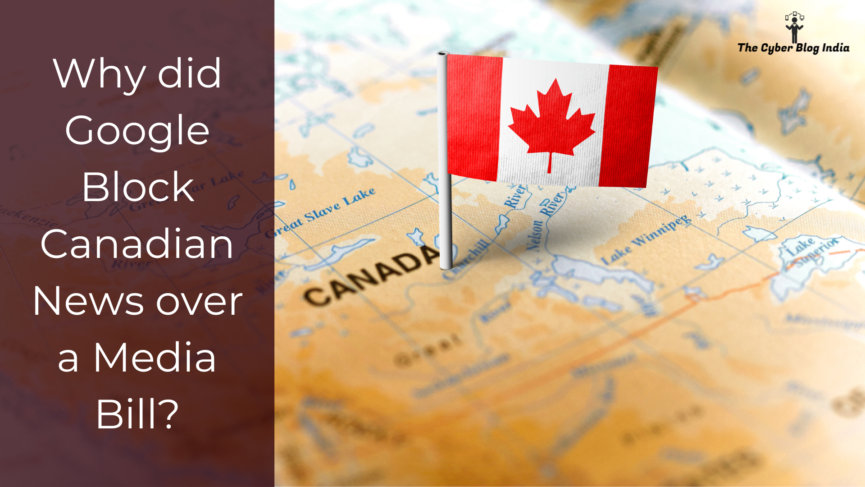Why did Google Block Canadian News over a Media Bill?

The Canadians woke up to a startling development on June 29, 2023. Google, the tech giant synonymous with online searches and news aggregation, announced it would block access to local news content for Canadian users. This unprecedented move came amid a heated standoff between Google and the Canadian government over Bill C-18 (aka “the Online News Act“). The legislation, designed to support struggling news outlets, sparked fierce debate about the future of journalism, the role of tech giants, and, ultimately, access to information in the digital age.
First Meta, then Google
In a move raising concerns about access to information and the future of journalism, Google’s announcement followed the passing of Bill C-18. This law mandates tech giants like Google to negotiate financial compensation with news publishers for their content. Google’s announcement follows similar actions by Meta, the parent company of Facebook and Instagram. Meta had already removed Canadian news from their platforms in response to this law. Both companies argued that the law is “unworkable” and unfairly burdens them with the cost of simply linking to news articles. They claim that their services benefit publishers by driving traffic to their websites.
The Canadian government, on the other hand, has maintained that the Online News Act is crucial to ensure the financial sustainability of the news industry. With advertising revenue heavily concentrated with tech giants, traditional media outlets have struggled financially. This led to job cuts and the closure of local newspapers. Proponents of the law argued that it would create a fairer playing field and provide much-needed resources for struggling news organisations.
The Stalemate
The standoff between Google and the Canadian government left many Canadians worried about the future of their access to local news. Moreover, Google’s search engine and news aggregator, Google News, are dominant news sources for many Canadians. Blocking access to local news for a prolonged period could have created significant information gaps, particularly for those relying on these platforms for daily news intake. The potential impact on local journalism is also a considerable concern. Smaller news outlets, already financially vulnerable, could be particularly hard hit by a traffic loss from Google platforms. Hence, this could lead to further consolidation within the media landscape, potentially stifling diverse voices and reducing the availability of local news coverage.
Echoes of Australia
This situation closely resembles the events that unfolded in Australia in 2021. Facing similar legislation, Facebook briefly blocked Australian news content on its platform before reaching agreements with major media outlets. Ultimately, negotiations between Google and Australian media companies yielded successful partnerships.
The Australian experience suggested a similar path in Canada might be possible. Both sides – the tech giants and the government – must be willing to compromise. Google could explore revenue-sharing models that compensate publishers for the value of their content to the platform without directly paying for linking. On the other hand, the government could consider refining the Online News Act to address Google’s concerns about the scope of its financial obligations.
The Outcome
A BBC article in November 2023 reported that Google reached a deal with the Canadian government. This announcement came after months of talks between the two parties. Google agreed to pay C$100 million (approx ₹605 crores) annually, indexed to inflation, to news outlets. While the tech giant would pay a single collective organisation, funds are expected to be distributed based on the number of full-time equivalent journalists engaged by the news outlets.
A Fight for the Future of Journalism
The battle between tech giants and governments is ultimately about the future of journalism in the digital age. A healthy democracy requires a well-funded and independent press that can hold powerful institutions accountable. The press is also responsible for giving citizens the information they need to make informed decisions. In addition, finding a solution that ensures a sustainable news industry and continued access to diverse and reliable information is crucial. This can only be achieved through open dialogue and a willingness to find common ground.
